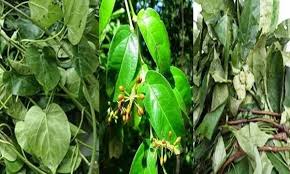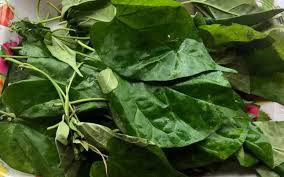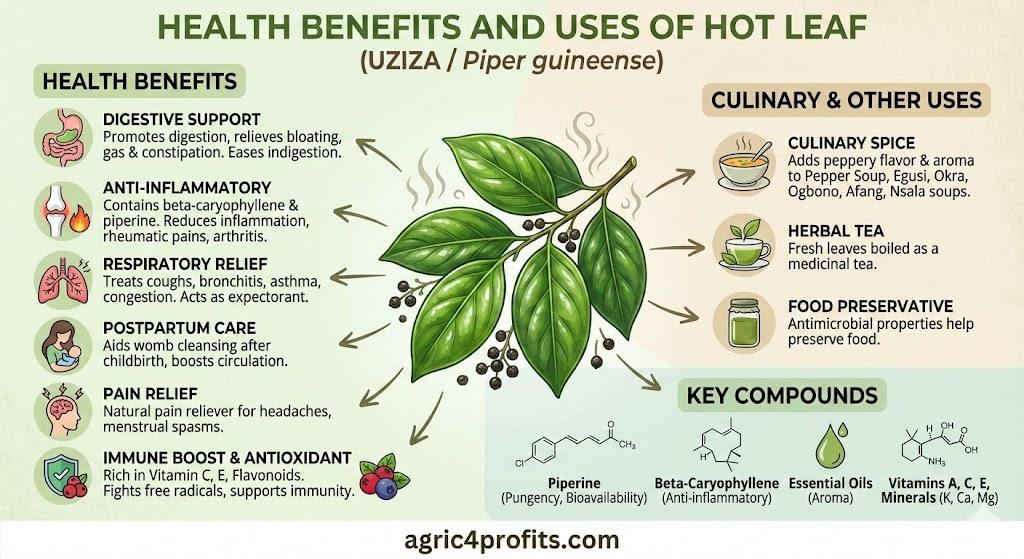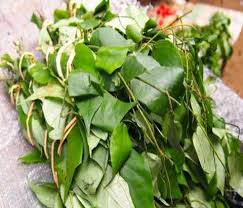Hot leaf, also known as “Uziza leaf,” is a popular herb used in West Africa, especially Nigeria. It is derived from the leaves of the Piper guineense plant, which belongs to the Piperaceae family.
Hot leaf has a slightly bitter and pungent taste with a unique aroma that is similar to black pepper. The plant is used in many dishes such as soups, stews, sauces, and pepper soup. It is also used as a medicinal plant to treat various ailments such as cough, fever, and stomach ache.
The leaves of the Hot plant are rich in vitamins and minerals such as vitamins A, C, and E, calcium, potassium, and magnesium. They also contain antioxidants, which can help protect the body against oxidative stress and reduce the risk of chronic diseases.
In addition, Hot leaf or Uziza leaf is a versatile and flavorful herb that is a staple in many West African cuisines and is valued for its medicinal properties.
Read Also: Garri (Cassava) Production Process Complete Guide
Description of Hot Leaf

When the leaves are crushed or torn, they release a strong aroma that is similar to black pepper with a slightly bitter and pungent taste. This aroma and taste are what make uziza leaf a popular ingredient in many West African cuisines.
In addition to its culinary uses, hot leaf also has medicinal properties. It has been used traditionally to treat various ailments such as stomach ache, cough, and fever. The leaves are also rich in vitamins and minerals, making them a healthy addition to meals.
Also, hot leaf or uziza leaf is a versatile herb that adds a unique flavor and aroma to many dishes while also providing numerous health benefits.
Health Benefits of Hot Leaf
Relieves pain: Hot leaf has analgesic properties that can help relieve pain, including menstrual cramps, headaches, and joint pain.
Anti-inflammatory: Hot leaf contains anti-inflammatory compounds that can reduce inflammation and swelling in the body.
Anti-bacterial: Hot leaf has anti-bacterial properties that can help fight against harmful bacteria in the body.
Anti-fungal: Hot leaf can help fight against fungal infections, including candida overgrowth.
Boosts immunity: Hot leaf contains antioxidants that can help boost the immune system and protect against disease.
Digestive aid: Hot leaf can aid digestion and help relieve symptoms of indigestion and bloating.
Diuretic: Hot leaf has diuretic properties that can help flush excess water and toxins from the body.
Anti-hypertensive: Hot leaf can help lower blood pressure and reduce the risk of heart disease.
Anti-cancer: Hot leaf contains compounds that can help prevent the growth of cancer cells.
Anti-diabetic: Hot leaf can help regulate blood sugar levels and improve insulin sensitivity.
Respiratory health: Hot leaf can help improve respiratory health by clearing airways and reducing inflammation.
Anti-anxiety: Hot leaf can help reduce anxiety and promote relaxation.
Anti-depressant: Hot leaf can help improve mood and reduce symptoms of depression.
Anti-seizure: Hot leaf can help prevent seizures and reduce the severity of epileptic episodes.
Anti-oxidant: Hot leaf contains antioxidants that can protect against oxidative stress and free radical damage.
Anti-viral: Hot leaf can help fight against viral infections, including the flu and common cold.
Anti-parasitic: Hot leaf can help eliminate parasites from the body, including intestinal worms.
Anti-arthritic: Hot leaf can help reduce inflammation and pain associated with arthritis.
Wound healing: Hot leaf can help speed up the healing process of wounds and cuts.
Skin health: Hot leaf can help improve skin health and prevent skin diseases such as acne and eczema.
It is important to note that while hot leaf has several health benefits, it should be used in moderation as excessive consumption can cause adverse effects such as stomach upset and nausea.
Read Also: Importance of Agriculture and the Way Forward
Uses of Hot Leaf

Flavoring: Hot leaf is often used to add flavor to dishes, especially in soups and stews. Its strong, pungent taste can enhance the overall flavor of the dish.
Aromatic: Hot leaf has a strong aroma that can add an additional dimension to the dish. It is often used to add fragrance to soups and stews.
Medicinal purposes: Hot leaf has several medicinal properties that make it a popular ingredient in traditional medicine. It is used to treat various ailments, including pain, inflammation, digestive issues, and respiratory problems.
Condiment: Hot leaf can be used as a condiment or garnish for various dishes. It can be used to sprinkle over salads, grilled meats, and roasted vegetables to add a spicy kick.
Tea: Hot leaf can be used to make tea by steeping the leaves in hot water. The tea is believed to have several health benefits, including pain relief, digestive aid, and immune system booster.
Infused oil: Hot leaf can be used to make infused oil, which can be used as a cooking oil or a salad dressing. The oil is believed to have several health benefits, including anti-inflammatory and anti-bacterial properties.
Spice blend: Hot leaf can be ground and mixed with other spices to make a spice blend. This blend can be used to season various dishes, including meat, poultry, and fish.
Smoke flavoring: Hot leaf can be used to add a smoky flavor to dishes, especially when grilled or smoked. The leaves can be placed on the grill or in the smoker to add a smoky flavor to the food.
Overall, hot leaf is a versatile ingredient that can be used in various ways to enhance the flavor and health benefits of dishes.
Scientific Evidence and Case Studies on Health Benefits and Uses of Hot Leaf
1. Analgesic and anti-inflammatory effects: Piper guineense leaf extracts show significant pain-relieving and anti-inflammatory properties in animal models, comparable to standard analgesics.
2. Antimicrobial activity: The leaves exhibit strong antibacterial, antifungal, and antiviral effects against various pathogens, supporting traditional use for infections.
3. Antioxidant properties: Rich in phenolic compounds and flavonoids, Hot Leaf provides potent free radical scavenging activity, protecting against oxidative stress.
4. Antidiabetic potential: Extracts help regulate blood glucose levels and improve insulin sensitivity in diabetic models.
5. Digestive and gastrointestinal benefits: Leaf extracts stimulate digestion, reduce bloating, and protect against gastric issues through enzyme stimulation and anti-ulcer effects.
Nutritional Value Of Health Benefits and Uses of Hot Leaf

Hot Leaf (Uziza leaf from Piper guineense, approximate values per 100g dried leaves) offers these key nutrients:
1. Rich in vitamins A, C, and E: Supports vision, immunity, skin health, and acts as powerful antioxidants to combat free radicals.
2. High in minerals like calcium: Promotes bone strength, teeth health, and muscle function.
3. Contains potassium: Aids in blood pressure regulation, heart rhythm, and fluid balance.
4. Source of magnesium: Supports nerve function, muscle relaxation, and energy production.
5. Provides dietary fiber: Enhances digestion, prevents constipation, and helps maintain healthy cholesterol levels.
6. Abundant in antioxidants and phytochemicals: Includes flavonoids and other compounds that reduce oxidative damage and inflammation.
7. Low in calories: Ideal for adding flavor and nutrition without significant caloric intake.
Summary of Health Benefits and Uses of Hot Leaf
| Aspect | Key Details |
|---|---|
| Description | Hot Leaf, also known as Uziza leaf, comes from Piper guineense (Piperaceae family), a West African herb with pungent, pepper-like aroma and slightly bitter taste, popular in Nigerian and West African cuisines. |
| Nutritional Highlights | Rich in vitamins A, C, E, calcium, potassium, magnesium, dietary fiber, antioxidants, and phytochemicals. |
| Health Benefits | Relieves pain (menstrual cramps, headaches, joint pain), reduces inflammation, fights bacteria and fungi, boosts immunity, aids digestion (indigestion, bloating), acts as diuretic, lowers blood pressure, potential anti-cancer and anti-diabetic effects, supports respiratory health, reduces anxiety and depression symptoms, anti-viral and anti-parasitic, promotes wound healing and skin health (acne, eczema). |
| Uses | Culinary: flavoring soups, stews, sauces, pepper soup; condiment or garnish; medicinal: tea for pain relief and digestion; infused oil; spice blends; traditional remedy for various ailments. |
| Precautions | Use in moderation; excessive intake may cause stomach upset or nausea. |
Frequently Asked Questions About Health Benefits and Uses of Hot Leaf
1. What is Hot Leaf?
Hot Leaf, also called Uziza leaf, is the leaf of the Piper guineense plant, a popular aromatic herb in West African cooking and traditional medicine with a strong peppery flavor.
2. How does Hot Leaf help with pain relief?
It has natural analgesic properties that relieve menstrual cramps, headaches, joint pain, and general body aches.
3. Can Hot Leaf reduce inflammation?
Yes, its anti-inflammatory compounds help decrease swelling and inflammation in the body.
4. Is Hot Leaf good for digestion?
Yes, it aids digestion, relieves bloating, indigestion, and acts as a carminative to ease stomach discomfort.
5. Does Hot Leaf boost the immune system?
Yes, its antioxidants and antimicrobial properties strengthen immunity and help fight infections.
6. Can Hot Leaf help lower blood pressure?
Yes, it has anti-hypertensive effects that support blood pressure regulation and heart health.
7. Is Hot Leaf beneficial for diabetes?
Yes, it helps regulate blood sugar levels and may improve insulin sensitivity.
8. How is Hot Leaf used in cooking?
Added fresh or dried to soups, stews, sauces, and pepper soup for flavor and aroma in West African dishes.
9. Can Hot Leaf be consumed as tea?
Yes, steeping the leaves in hot water makes a medicinal tea for pain relief, digestion, and immune support.
10. Is Hot Leaf safe for regular use?
Yes in culinary amounts, but moderate use is recommended to avoid potential stomach upset from excessive consumption.
Do you have any questions, suggestions, or contributions? If so, please feel free to use the comment box below to share your thoughts. We also encourage you to kindly share this information with others who might benefit from it. Since we can’t reach everyone at once, we truly appreciate your help in spreading the word. Thank you very much for your support and for sharing!
Disclaimer: This article is for educational and informational purposes only. The health benefits described are based on scientific research and traditional knowledge. They ayre not a substitute for professional medical advice, diagnosis, or treatment. Always consult a healthcare professional before using any herb or natural remedy for medical purposes.
Read Also: Snails: Dried Snail- Recipe, Health Benefits and Risks

